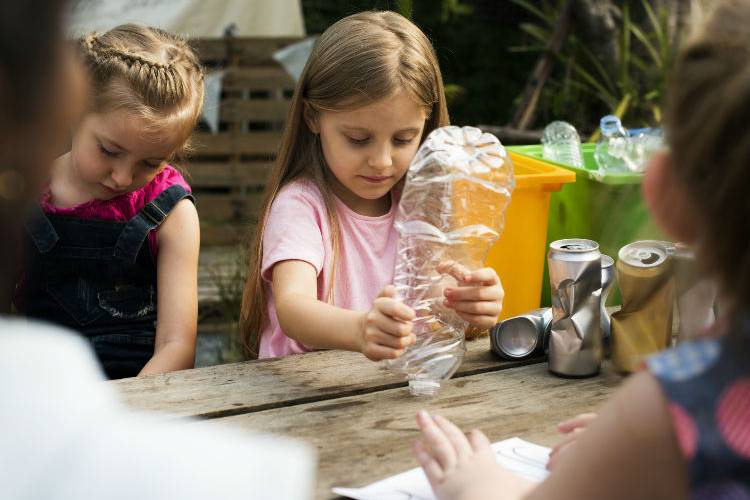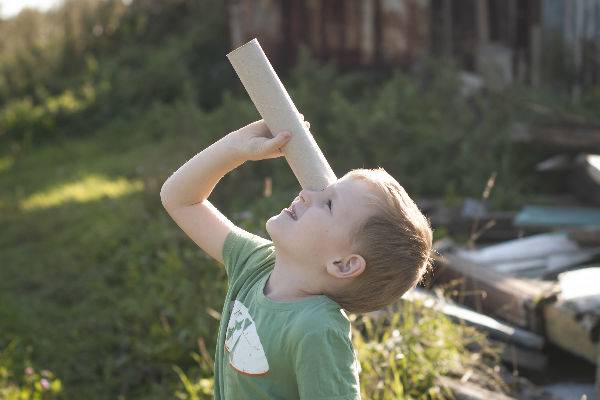8 keys to educating children about responsible consumption
I want it! Do you buy it for me? Give it to me! Most children live in a universe in which any whim or need is met almost instantly. In this society oriented to the consumption is important to mark the minors some guidelines so that they learn to consume in a responsible way.
IT’S ECO, IT’S LOGICAL
Share

For everything we need there exists an adequate product or service. And if it does not exist, there will always be someone who invents it. Nobody can deny that we live in a society oriented toward consumption, to satisfy our needs (or whims) in an immediate way, generating constant dissatisfaction in people and always wanting the latest fashions or the newest version of something that we already have, although it works perfectly.
This translates into technological objects, clothing, cosmetics, etc. But also into social events, such as going to dinner at popular places or creating the desire to go to the other side of the world when we have a holiday, among things.
What about children?
When you are an adult, you are able to assess and analyse the pros and cons of excessive or unnecessary consumption. But when this feeling of consumption is transferred to little ones, that reasoning is not yet fully developed. It is at this point that, as parents, we must act to shape the consumers of the future, consumers who not only buy on impulse but also look for values behind each purchase.
And this is based on responsible consumption, which encourages society to change its habits, trying to adapt these habits to our real needs and always seeking out goods and services that favour environmental protection and social equality.
In short, responsible consumption is characterised by giving preference to companies, products and services that respect the environment, consistently focus on quality and materials used in production, and how it benefits society. This is what we must transfer to them.
The example, parents’ greatest ally
Birthdays, Christmas gifts or even something as common as shopping at the supermarket, can become the perfect opportunity for children to ask for everything they can think of. Do you need them? Probably most of the time the answer is 'no', but to reason that they cannot, and do not need to have everything they see, it is necessary to teach by example. In addition:
1. Let them participate in buying decisions. If you encourage them to decide or observe how you decide what is bought in the supermarket, why you have chosen one product and not another, surely they will become more aware. In addition, a visit to the supermarket also serves to help them appreciate fresh seasonal foods, which are usually locally sourced and, therefore, have required less travel to reach the store, or the difference between buying in bulk or packaged, where much more plastic is used to contain items. These are small actions that can do so much for children and for their environment.
2. Avoiding waste. Planning weekly purchases also helps us reduce waste, using much more of what we buy and avoids throwing away spoiled food.

3. Be careful with rewards. Encouraging them by buying them the toy they want if they get good marks or allowing them to watch a film at the cinema if they eat all their dinner, may work in the short term, but it may backfire. We must teach the children to take responsibility for their tasks without always seeking a reward. Just as they have rights, they also have obligations. Associating good behaviour with a reward or gift, usually material, does not benefit them.
4. Beware of payment. Knowing how to manage their money may help children to be responsible. They must learn to value the importance of saving. It is a practical exercise that will serve them well when they grow up.
5. Gifts. A good way to manage what children ask for Christmas, birthdays or other special occasions, is to divide them into 3 parts: one for needs, one to share and play with others and one that is truly a whim. We avoid overwhelming them with a multitude of things and it helps them to value things differently. It’s not about going broad; it’s about going deep.
6. The importance of the 3 "R"s. Reduce, reuse and recycle, teaches children that not everything is to be used and discarded. Reuse containers, recycle clothes, use detergent, etc. only as necessary. There are many actions we can take to make our consumption more efficient and to protect the environment. Becoming aware of this is very important.
7. A stone. Valuing objects that, at first glance, seem worthless, but remind us of a day at the beach, the smell of grandma's food, the painting you did as a child, etc. Even the smallest and most insignificant thing can have value; therein lies the importance of appreciating the little things.
8. Share good times. Because not everything we need is material. In the end, responsible consumption is something that rarely occurs. To share moments of fun with your family is the best kind of consumption and it costs us nothing!
The role of Consum
Consum has been a signatory of the national network of the United Nations Global Compact since 2011. Annually, it renews its commitment to the 10 Principles and Objectives of Sustainable Development. Among the actions and projects carried out by the Cooperative is the Profit programme, responsible for responsible food management, the continuous commitment to protecting the environment in all its activities and more than 75 conciliation and equality measures for its workers.






